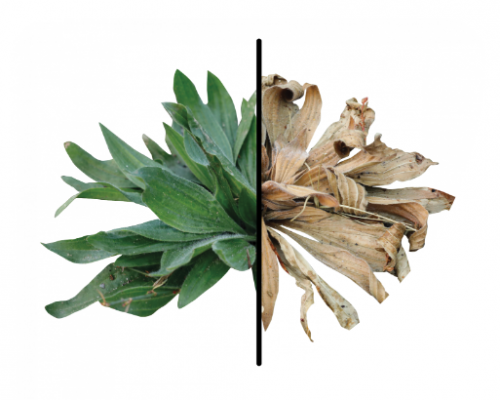Florida native plants for sustainable landscapes.
Visit PlantRealFlorida.org

Howard Vlieger, US representative for Contact Organics, an Australian company and FANN allied member, will be demonstrating their acetic acid based Weed Terminator product at the University of North Florida in Jacksonville on Tuesday, June 7, from 10:00-11:30am. All are welcome. Meet at the Bioswale, parking lot 7. Parking fees are being enforced. Thanks to Rhonda Gracie at UNF for organizing this and inviting everyone to participate.
For info, call Howard at 712-441-3911 (cell)
This announcement does not constitute an endorsement of any product or supplier.
In response to FANN’s initial outreach about Contact Organic’s June 2022 visit to Florida, one FANN member shared their experience with acetic acid and concerns about acetic acid based products (the following edited for clarity):
There are concerns about other such products marketed as organic, such as WOW / ecomight, which have been found to contain traces of non-organic chemicals including Glyphosate and removed from the market. Acetic acid has been used for years as a weed killer. We buy it as 97% acid and cut it to 30% for organic production. Large-scale organic farmers use many types of natural herbicide including acetic acide approved by organic standard groups (e.g., OMRI). They work mainly by burning back foliage. Multiple applications required to actually kill grass and broadleaf weeds. Multiple applications can change soil pH and more, so no matter what herbicide you use, you have to be careful. We use acetic acid strictly on blueberries because it brings pH down.
Wow & Eco-might are not associated with Contact Organics.
US EPA notice about Ecomight
California notice
Response from Contact Organics:
We just received independent laboratory analysis on our products. [SEE BELOW] They were tested for many different types of conventional herbicide ingredients. Everything came back non-detectable. Our product has 20% acetic acid as the active ingredient but thanks to the unique and special formulation of natural oils and emulsifier and wetting agent package that we have in the Boost product that we use with the acetic acid, we are only spraying a 1% acetic acid solution.
We also have a two-year scientific study that is hopefully going to be published this year that demonstrates an increase in the beneficial biology in the soil and a decrease in the disease causing organisms in the soil where our product was used. Because we are using a much lower concentration of acetic acid, we are feeding the beneficial organisms rather than endangering them.
Multi-residue pesticide analysis
Glyphosate – AMPA Residue Test Results 5-2022
HRI Dipyridilium pesticide analysis in Contact Organic Herbicide